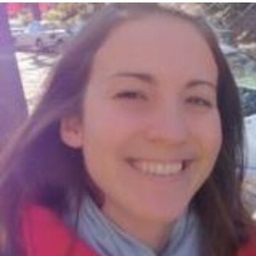
Elizabeth Quill
Freelance Science Editor at Freelance
Professional reader, enthusiastic eater, explorer of the world. Enterprise editor, Science News magazine.
Articles
-
1 month ago |
msn.com | Elizabeth Quill
Continuar leyendo Más para ti
-
1 month ago |
elpais.com | Elizabeth Quill |B. Johnson |S. Tacchella |P. Cargile
El revolucionario telescopio espacial ‘James Webb’ y los radiotelescopios de nueva generación están sondeando lo que se conoce como la época de la reionización. En ella se encuentran pistas sobre las primeras estrellas y galaxias, y quizás sobre la naturaleza de la materia oscura Elizabeth Quill KNOWABLE EN ESPAÑOL Durante los millones de años que siguieron al Big Bang, después de que se enfriara la sopa de partículas del universo, el cosmos era un lugar oscuro y aburrido.
-
Feb 6, 2025 |
snexplores.org | Elizabeth Quill |Emily Conover |Stephen Ornes |Ashley Yeager
A yet-unseen population of ancient black holes may be lurking throughout the universe. If they exist, these bottomless cosmic pits would have a lot in common with known types of black holes. But unlike known black holes, the mysterious kind would have formed right after the Big Bang — before stars and galaxies even existed. Such early-blooming black holes would be primordial black holes. Scientists have wondered for decades if such exotic objects exist.
-
Jan 30, 2025 |
daily.jstor.org | Elizabeth Quill |Helge Kragh |Adam Mann |Fulvio Melia
The icon indicates free access to the linked research on JSTOR. For millions of years following the Big Bang, after the universe’s roiling soup of particles had cooled, the cosmos was a dark and boring place. There were no stars to make light. No familiar swirls of galaxies. Certainly no planets. And the entire universe was shrouded in neutral hydrogen gas. Then, perhaps 100 million years or so in, everything started to change.
-
Jan 13, 2025 |
sciencenews.org | Elizabeth Quill
An undiscovered population of ancient black holes may be lurking throughout the universe. These bottomless cosmic pits would have a lot in common with more familiar black holes; in some cases, the two may be indistinguishable. But unlike their kin, these undiscovered black holes wouldn’t have formed from a massive star collapsing in on itself, nor would they be peers of the supermassive black holes that feed at the centers of galaxies.
Try JournoFinder For Free
Search and contact over 1M+ journalist profiles, browse 100M+ articles, and unlock powerful PR tools.
Start Your 7-Day Free Trial →X (formerly Twitter)
- Followers
- 396
- Tweets
- 93
- DMs Open
- No

Highlighting these 10 amazing scientists for @ScienceNews was such a rewarding project! https://t.co/Fmpqutnu8k

Who are the next rock stars of science? Meet the SN 10. https://t.co/rJD3oeCgPb #SN10 https://t.co/FPQJKg6TPR

Putnam should have read Science News' ebook on Time. https://t.co/KmRzFKUFk4 https://t.co/PXZ14aaEzF

“I do not believe that there are any longer any philosophical problems about Time.” —Hilary Putnam (1967) https://t.co/SE0SVXS7h5

270 Kinds of Birds, in One Gigantic Life-Sized Mural https://t.co/PodYEfsAur